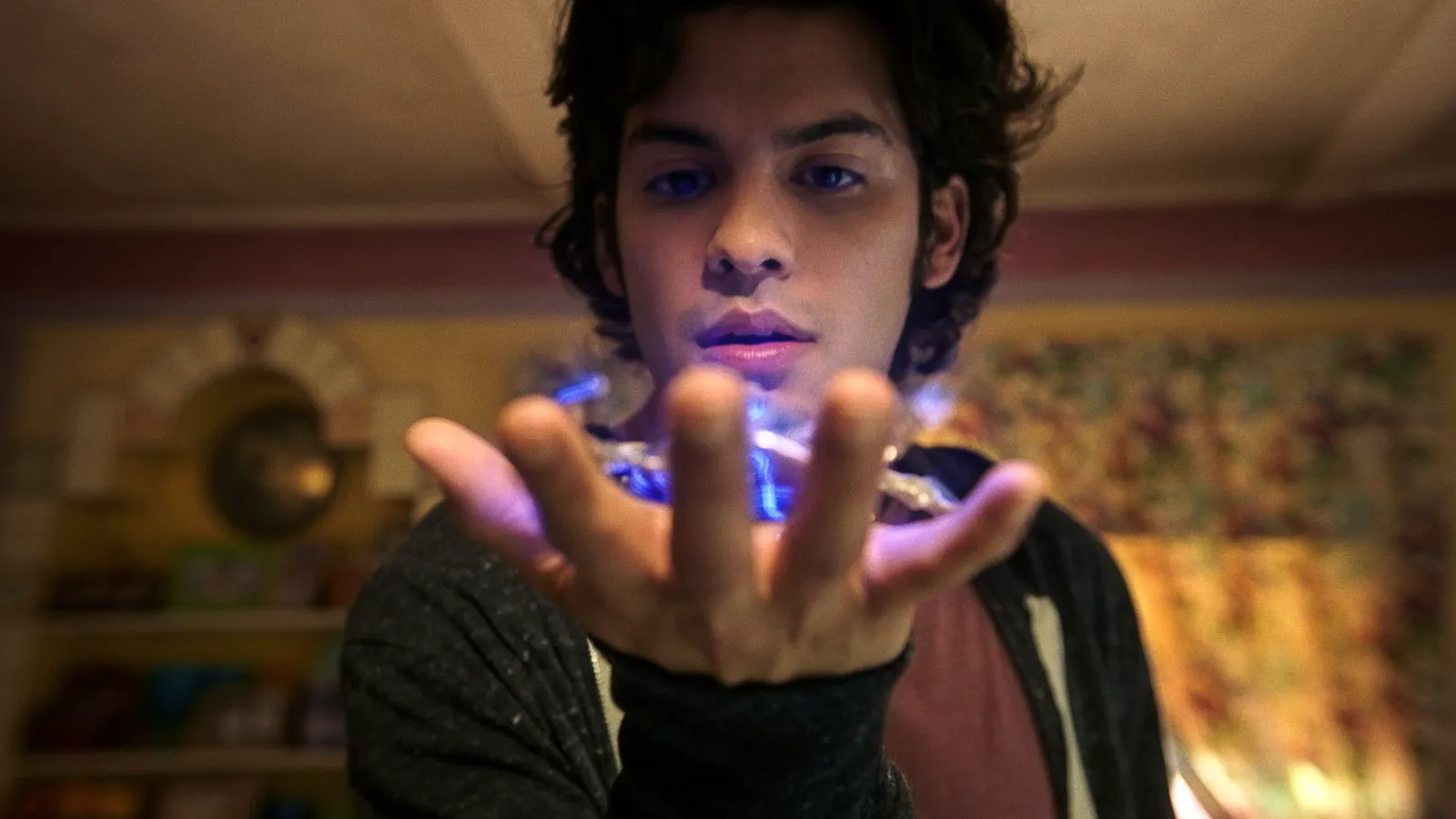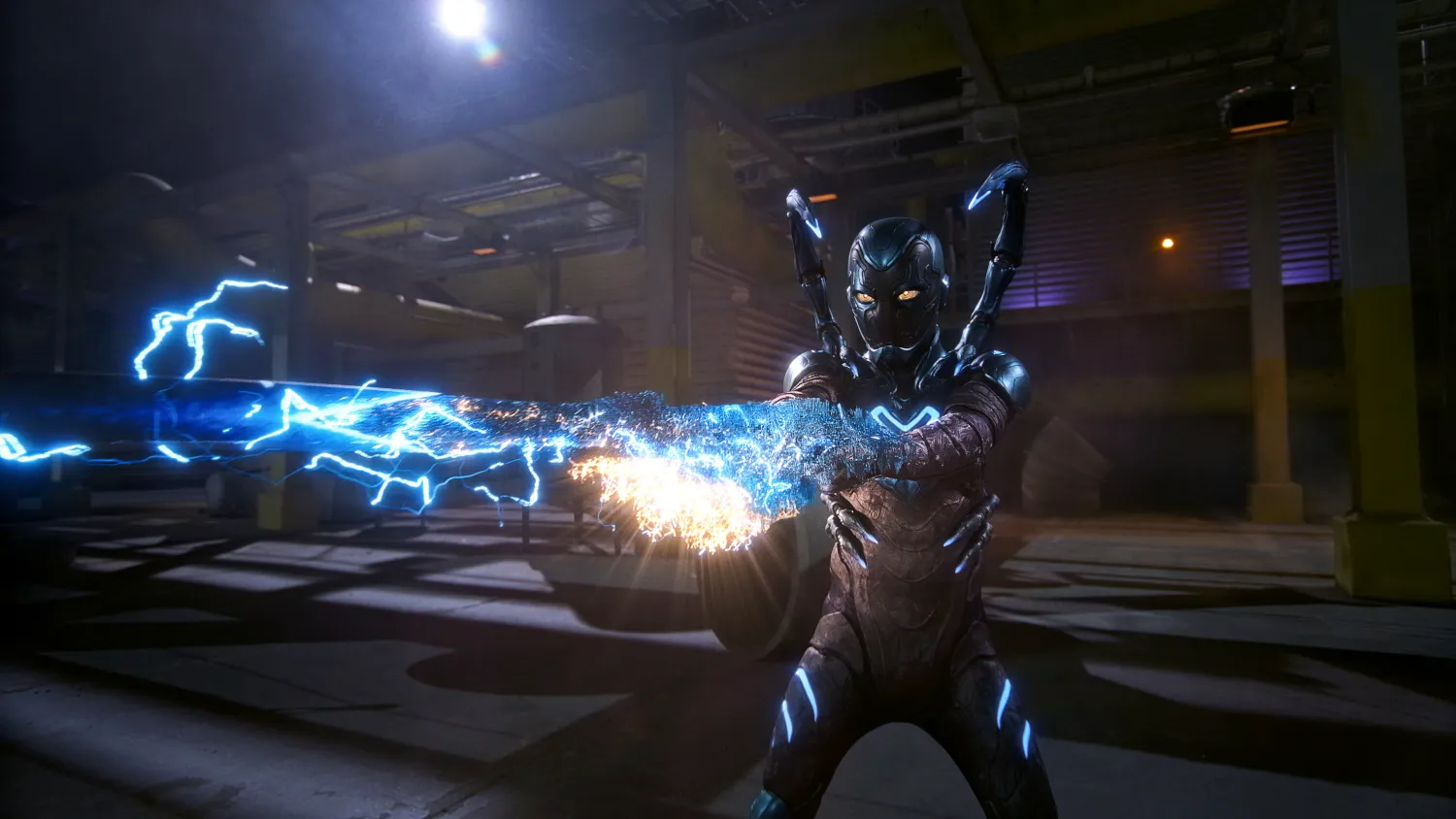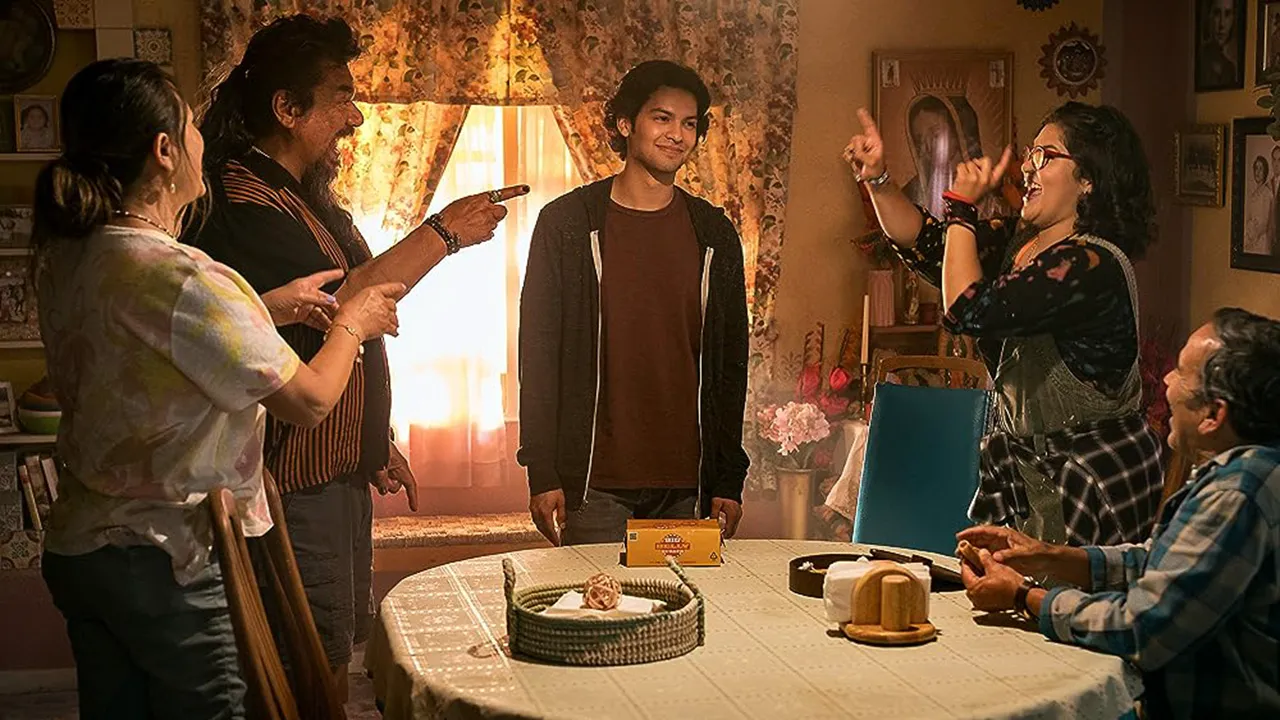Jaime (Xolo Maridueña), a recent college graduate, returns to Palmera City to his struggling family. He finds work as a cleaner and meets Jenny Kord (Bruna Marquezine), the niece of Victoria (Susan Sarandon) and director of Kord Industries, which is conducting biotechnical weapons experiments. Jaime’s life takes a dramatic turn when he comes across a mysterious alien scarab—an exoskeleton that chooses him as its host. Now, a furious Victoria throws everything she has into hunting down the young man and stripping him of his newfound abilities.

Xolo Maridueña as Jaime in a still from “Blue Beetle”
Quickly and quietly, comic books have turned into a playground for entomologists. The superhero world is now dominated by insect-like characters, and their stories are easily put into studio production. This applies to both Marvel (think “Ant-Man”) and the DC Universe, which dared to give a chance to a new, almost unknown superhero—teenager Jaime Reyes, the lucky owner of an alien beetle suit. Releasing another comic book movie after the relative failure of “The Flash” is a bold move for Warner Bros., but director Angel Manuel Soto has prepared a film with seemingly winning variables: a teenage superhero in the vein of Peter Parker, battling madmen from dangerous laboratories, and a uniquely alluring Latin American flavor with Mexican temperament, humor, and spark—an attempt to emulate what once worked for Marvel with “Black Panther” and its African energy. In terms of dramaturgy and technical level, “Blue Beetle” feels like a product of the unremarkable 2000s, not burdened by moral dilemmas or plot twists: the guy just needs to try on the suit, realize the power comes with responsibility, defeat the villain, and ride off into the sunset with a beautiful girl.

Xolo Maridueña as Jaime in a still from “Blue Beetle”
The problem is that nostalgia for simplicity and ease is only partially charming. “Blue Beetle” is tiresome in its desire to return to where Spider-Man began: less-than-respectable city neighborhoods, a young man struggling to understand his future path, plus a didactic moral with a father whose fate mirrors that of Uncle Ben. The Mexican family looks bitterly at the towering corporate buildings, and the cause of all troubles, unsurprisingly, is megalomaniac managers: a remarkably tasteless villain played by Susan Sarandon, whose bodyguard is a thick-headed strongman (Raoul Max Trujillo in a technological exoskeleton). The film has several exciting action scenes—some quite shamelessly reminiscent of “Iron Man”: the hero takes his first flight, and the camera accurately conveys the advanced interface of the suit. It’s surprising that it didn’t include adrenaline-pumping AC/DC tracks.

Xolo Maridueña as Jaime in a still from “Blue Beetle”
When the plot intrigue, as well as the Mexican flavor, fades, “Blue Beetle” unabashedly turns to comedy. Eccentric family members watch their unique superhero relative, and the grandmother fearlessly arms herself with a high-tech gun: you’d do anything for family, because family, as the moral echoes, is the most important thing. Overall, “Blue Beetle” is unpretentious superhero fare, without sharp edges or extremes, but with the general goal of expanding its audience to include Latin American viewers. Now they, too, will rightly feel involved in the loud superhero myths that often bypassed Mexican neighborhoods and their hard lot. But despite its colorfulness and upbeat electronic soundtrack, Angel Manuel Soto’s creation fails to offer anything original: not a single creative move capable of prolonging the life of the coleopterous insect. “Blue Beetle” has already shown a disappointing start (the worst in the history of the DC Universe)—this trend may soon collapse the entire hegemony of comics in the blockbuster market, proving once again: people are gradually tired of fast, flying, and insect-like superhumans.